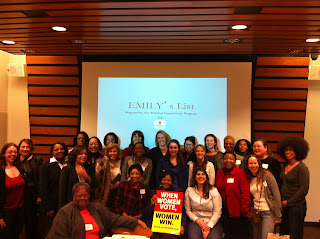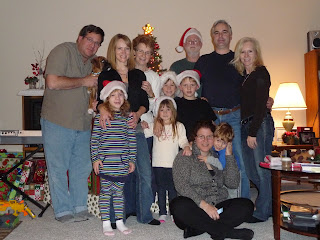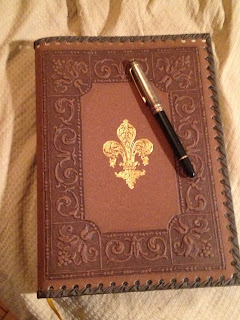At the end of each year, I take stock of all that I accomplished…and didn’t. After several years of moving forward in the acting realm, progress came to a screeching halt in April. The SAG-AFTRA merger in March actually led to less auditions, and I couldn’t get motivated to prepare for and pay to meet casting directors and agents at networking companies such as One on One and Actor’s Connection. Why? My focus was elsewhere.
My volunteer work in the cancer community was less active than in previous years, aside from speaking engagements at a few cancer conferences. Book sales for
Rebirth were lackluster because marketing it this year was hardly a priority. My current thinking is that the book is out there in cyberspace and available to whomever may need it. Who knows, it may someday be a best seller, if I ever become a well-known commodity or a savvier promoter. But again, my focus was elsewhere.
So where was my focus? The answer is on France and politics. These two topics consumed me because this was my first trip to Paris—my first time in Europe, for that matter—and it was a Presidential election year.
Planning for Paris was a blast and I delved into it with effortless zeal, reading Fodor’s France and Paris travel books and other books on Paris, brushing up on my language skills, and listening to French radio every morning on my smart phone on the way into the city (I still do) and to French music on the walk from the Port Authority to the my office on Park Avenue.
I ventured to Paris on my own. Furthermore, this was my first solo trip overseas, which was both frightening and exhilarating. I discovered that I was much more courageous and outgoing than I ever imagined and met some wonderful people. Paris was magical—one of the best experiences of my life and quite the adventure.
My October 15 post “Solo in Paris” details much of my trip in words and images, if interested in reading about it.
Once I returned from Paris on September 7, it was all about the election. I was transfixed on it. Reading blogs and news sites and watching news programs were all-consuming. Then there was the massive research and writing of blog posts I published on my own site. While I do write to persuade and share information, much of my writing is for me alone. Writing helps me formulate the reasons why I support certain positions and believe what I believe.
An enormous amount of time was spent researching, writing, and paying attention to politics and current events. I loved it even though often times it made—and still does make—me crazy, frustrated, and anxious. Then in a flash, the election was over (like Paris, here and gone) and the end of the year was near.
So, what did I accomplish this year? Well, it’s not an accomplishment, but I learned that I love to travel. I experienced several “firsts.” Paris and Las Vegas were cities I visited for the first time and traveled to both alone. In Las Vegas, I participated in a young adult cancer conference and being there by myself forced me out of my shell, to meet new people and engage with them. I also met author and healthcare activist
Wendell Potter in Vegas. I emailed him before the conference to let him know I was attending and would enjoy meeting him. That bit of audacity paid off because every now and then we correspond over email.
 |
| With Wendell Potter |
Another author I met this year was
David Downie. He wrote one of the books,
Paris, Paris: Journey into the City of Light, I read prior to my French vacation. I reached out to him via email a couple weeks before my trip and he was kind enough to meet me for coffee and sign my book. A couple months later, he checked in on me after Hurricane Sandy, and I wrote a
glowing review for his book on Amazon.
 |
| With David Downie |
These two author meetings happened because I took the initiative to reach out and ask for what I wanted. I did this in other areas of my life too with the results being that I met smart, accomplished people who may open the door for job opportunities down the road; and at the very least, my initiative afforded me interesting encounters, expanding my social and career networks. I am not naturally a connector, as many of my business-oriented friends are, but I am working on it.
Another first was NFL business travel. I assisted with the Club Business Development Sales & Marketing Conference in Chicago in November. This offered me the chance to be more involved with the work my group does and to meet many of the Club personnel with whom my relationships have been solely through online interactions. Now I am able to put faces to names and they know me, which is valuable in any occupation.
I realized this year that my interests are changing. I still love acting and should a role come along I really want to tackle, of course, I would jump at it. (I’m hoping for the opportunity to perform in Cincinnati in the next year or two – fingers crossed.)
However, over the past few years when out with my friends, even actor ones, I was not discussing acting; I was talking politics, and quite passionately. Recently I thought to myself, ‘Politics and current events are what I pay attention to the vast majority of the time. I read, research, write, and formulate ideas…’ then flash—‘this is how I should be making a living, or run for office, if I can muster the courage.’ I even explored what it would take to run for political office in March by attending a training program hosted by Emily's List and Eleanor's Legacy.
 |
| Emily's List - Political Opportunity Program - March 2012 |
Yet still, I find it impossible to release the image of my being an actor. It has been such a huge part of who I am for almost twenty years. How do you let go of an ingrained identity? This I believe is the biggest reason why I often feel stuck these days. I try to move forward, yet find myself clinging to the idea of a life I’m not even sure I want anymore.
Happily, I have come to a conclusion: I don’t have to shed my actor identity because it is a part of who I am regardless of if I am actively doing it at any given point in time. I have performance credits and skills and can return to acting at anytime. Just because other interests are pursued doesn’t mean performing is finished forever. Plus there are other avenues of performance: speaking and reporting, maybe even returning to cabaret and ballroom dancing, including swing and salsa. There are many options.
So, back to the question: What did I accomplish this year? A lot actually, but most importantly, the picture is clearer, though still a bit hazy, for where I am headed career-wise. I have amassed a sizable body of writing over the past eight years: my blog, a blog on Open Salon, my book,
Rebirth, and a couple of published articles. I am a writer and an analyst. I can use my theatre, film, and speaking skills for on-camera reporting or anchoring, even if I create my own platform on YouTube. There are numerous ideas churning around in my brain, so I am a bit overwhelmed. Where to start? That is the question. If any of you have suggestions or contacts, I would love to hear them.
For now, I am going to spend the remainder of the year enjoying time with family and friends, not obsessing about politics or the “fiscal cliff” or thinking about careers, or anything else. Focus on the personal aspects of my life and give thanks for everyone and everything in it. Many friends’ families this year are dealing with cancer, other illnesses, divorce, and grieving for loved ones who passed away recently. Last Friday’s school shooting in Newtown, CT, was a stark reminder of how fleeting and fragile life is, and how circumstances beyond our control can bring about unspeakable sorrow in an instant. Never take those we love for granted.
Nine years ago today I was diagnosed with leukemia. It seems unbelievable that many years have passed. One thing I learned—and there were many lessons—during my treatment period was to live fully in the present. It is the one lesson I have consistently done well to remember and practice. The here and now is all we have. Don’t ignore it, no matter how mundane or unimportant it may seem.
On Thanksgiving Day, I saw a quote on Twitter that I felt compelled to share on Facebook. I think it bears repeating here:
"Enjoy the little things, for one day you may look back and realize they were the big things."
- Robert Brault
 |
| Christmas 2011 in Tell City, IN (One of the big things!) |
Merry Christmas and Happy Holidays to all!
 I can attest to the value and power of the written word as someone who has been journal writing for twenty-three years. Not only have I written for my life during times of crisis, but I have actually written my life, which is exciting and empowering—knowing that I am the creator of my life.There are numerous examples in my writings to support this assertion. The above experience contains several layers of manifestation that culminated in one extraordinary outcome.
I can attest to the value and power of the written word as someone who has been journal writing for twenty-three years. Not only have I written for my life during times of crisis, but I have actually written my life, which is exciting and empowering—knowing that I am the creator of my life.There are numerous examples in my writings to support this assertion. The above experience contains several layers of manifestation that culminated in one extraordinary outcome.

















